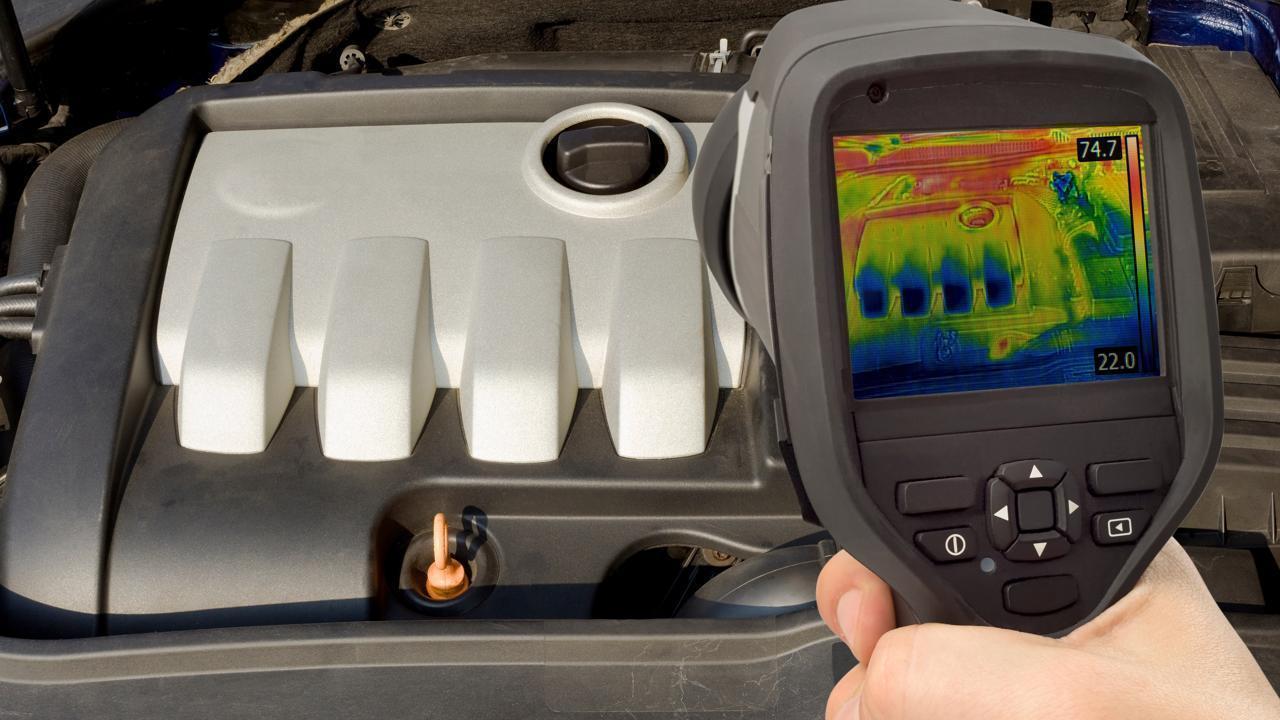
Post by : Amit
Bosch’s Smart Thermal Valve: A Game-Changer in EV Battery Cooling
The global electric vehicle (EV) industry just got a significant performance upgrade—thanks to Bosch’s latest innovation in thermal management. The company has unveiled a new Smart Thermal Valve Platform, a precision-engineered solution designed to enhance battery cooling, safety, and energy efficiency in electric vehicles. This smart valve system is more than a component—it's a step toward making EVs smarter, safer, and more resilient to thermal challenges.
With EV adoption accelerating across the globe, the pressure on automakers and suppliers to optimize vehicle systems has never been higher. As batteries become more powerful and energy-dense, thermal regulation is becoming a mission-critical factor, not only for performance but also for safety. Bosch’s new thermal valve aims to address that challenge by giving automakers a scalable, intelligent solution that adapts to the complex needs of modern EVs.
Why EV Battery Cooling Is a Growing Concern
Electric vehicles run on lithium-ion batteries that are highly sensitive to temperature changes. Extreme heat can degrade battery life, reduce range, and even pose safety risks, such as thermal runaway and fires. Conversely, excessive cold can hinder battery performance, increase charging times, and compromise driving comfort.
To maintain optimal battery health and ensure vehicle safety, manufacturers rely on liquid-based thermal management systems that circulate coolant through the battery pack. But traditional valve systems in these circuits are often passive or mechanical, lacking the real-time intelligence needed to adjust to sudden environmental or operational shifts.
That’s where Bosch steps in—with a smart, electronically controlled thermal valve system that actively monitors, responds to, and optimizes thermal fluid flow across the vehicle's powertrain and battery pack.
The Innovation Behind Bosch’s Smart Valve Platform
Bosch’s new platform consists of modular thermal valve units that integrate sensor inputs, real-time data processing, and electro-mechanical actuation. Unlike conventional valves that simply open or close based on predefined triggers, these smart valves are equipped with algorithms that adjust fluid distribution dynamically—based on real-time temperature, driving behavior, vehicle load, and ambient conditions.
The platform is designed to work across a range of vehicle sizes, from compact urban EVs to heavy-duty electric trucks and buses. The key technical capabilities include:
The adaptive intelligence of the platform allows for proactive thermal management—reducing energy consumption during standard operation and maximizing cooling capacity when the system is under thermal stress (e.g., fast charging, aggressive driving, or hot climates).
Benefits That Go Beyond Cooling
At first glance, Bosch’s thermal valve system may seem like a small part of a much larger machine. But in the highly integrated world of EVs, every component plays a critical role in system-wide performance.
By improving the efficiency and precision of battery cooling, the smart valve platform helps:
A Strategic Move in a Growing Market
Bosch’s launch couldn’t come at a better time. According to IDTechEx, the global market for EV thermal management systems is expected to surpass $16 billion by 2030, driven by rising EV sales and tighter thermal performance regulations. Automakers are increasingly looking for smarter, integrated, and scalable solutions to maintain competitive advantage in performance, safety, and efficiency.
"Thermal management is no longer a background system—it’s a core enabler of EV performance," said Dr. Markus Heyn, member of the Bosch board of management and chairman of the Mobility Solutions business sector. "Our smart thermal valve is a key part of the mobility ecosystem we are building, and it will empower manufacturers to deliver better, safer electric vehicles."
OEMs Already Showing Interest
While Bosch hasn’t named any specific customers yet, sources close to the company suggest that pilot programs are already underway with multiple global OEMs, including those focused on premium electric sedans and performance SUVs. The modularity of the platform allows manufacturers to customize configurations based on their unique thermal management architectures.
In addition to battery cooling, the smart thermal valve can also support cabin pre-conditioning, inverter temperature regulation, and even waste heat recovery—making it an all-in-one solution for managing heat across the vehicle ecosystem.
AI Integration on the Horizon
Bosch has also hinted at future updates to the platform that could include AI-powered predictive thermal management. By combining historical driving data, real-time inputs, and machine learning algorithms, the valve system could anticipate cooling needs before temperature thresholds are reached—resulting in even greater efficiency and component protection.
Imagine an EV that knows when you're about to fast-charge and preemptively lowers the battery temperature, or predicts a steep climb ahead and adjusts the cooling to prevent motor overheating. These aren't just theoretical scenarios—they're part of Bosch’s roadmap.
Sustainability by Design
Bosch has made sustainability a key pillar of its product development strategy. The smart thermal valve platform is designed for minimal environmental impact through:
By enabling more efficient cooling, the valve also reduces the EV’s overall energy consumption, indirectly cutting emissions from electricity generation—particularly in countries where fossil fuels still play a large role in the power mix.
What This Means for the EV Industry
Bosch’s smart thermal valve is a timely reminder that breakthroughs in EV technology don’t always come from batteries or motors. Sometimes, it's the intelligent optimization of supporting systems that unlocks the next level of performance.
As EV adoption continues to surge—especially in emerging markets and extreme climates—advanced thermal management systems will be crucial in ensuring reliability, comfort, and long-term customer satisfaction. Bosch’s solution positions itself as a must-have component for next-generation EVs.
A Small Valve with Big Impact
Bosch’s Smart Thermal Valve Platform may be compact in size, but its impact on the EV world could be monumental. By combining digital intelligence with mechanical precision, the company has created a thermal management solution that not only meets the challenges of today’s electric vehicles but also anticipates the demands of tomorrow.
With safety, range, and battery longevity becoming make-or-break factors in EV design, Bosch’s innovation offers OEMs a competitive edge—and consumers a smoother, safer ride. As electrification continues to evolve, smart components like these will be the hidden heroes keeping the future of mobility cool—both literally and figuratively.
Ev Battery










Advances in Aerospace Technology and Commercial Aviation Recovery
Insights into breakthrough aerospace technologies and commercial aviation’s recovery amid 2025 chall

Defense Modernization and Strategic Spending Trends
Explore key trends in global defense modernization and strategic military spending shaping 2025 secu

Tens of Thousands Protest in Serbia on Anniversary of Deadly Roof Collapse
Tens of thousands in Novi Sad mark a year since a deadly station roof collapse that killed 16, prote

Canada PM Carney Apologizes to Trump Over Controversial Reagan Anti-Tariff Ad
Canadian PM Mark Carney apologized to President Trump over an Ontario anti-tariff ad quoting Reagan,

The ad that stirred a hornets nest, and made Canadian PM Carney say sorry to Trump
Canadian PM Mark Carney apologizes to US President Trump after a tariff-related ad causes diplomatic

Bengaluru-Mumbai Superfast Train Approved After 30-Year Wait
Railways approves new superfast train connecting Bengaluru and Mumbai, ending a 30-year demand, easi